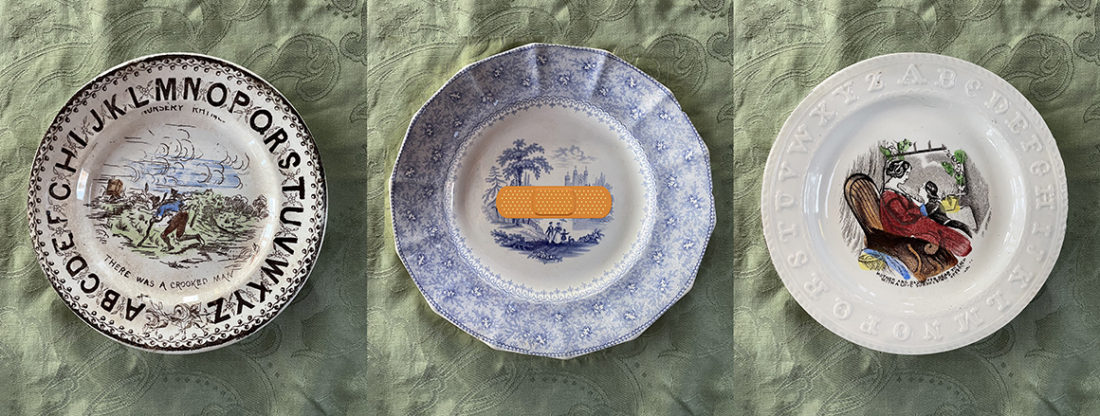To: Jackson Packer, AustralAsian Consolidated Publishing
From: Museum of Modern Political Decisions
March 7, 2060
Dear Jackson,
I enjoyed meeting you at the Monarchy Symposium last week. Your speech was inspired, and it is indeed regrettable that AustralAsia hasn’t benefitted from Queen Charlotte’s reign. Republicanism is not all it’s cracked up to be and I’m certain our President, Jett Curry-Kenny would concur with our musings. The President’s ongoing diplomatic battles with the Maldives Coalition is concerning, given their economic power. Your searing coverage of the issues has been insightful.
I wanted to bring to your attention — and invite your patronage — of our upcoming exhibition “Unprecedented: A COVID-19 Retrospective”. As you are aware, March 18 is the 40th anniversary of the announcement of the pandemic that shuttered the world. The exhibition will open this evening and will feature key artefacts, for example, this interview (transcribed for your convenience):
“My friend called me from Mumbai and told me to turn on the television and I heard the Prime Minister say that Australians should get themselves home as soon as possible because there is a global health threat and there’s no guarantee that the country will stay open and we will be allowed in… Oh, God… I have no idea what to do because I can’t just pack up my life here even though I’d planned to come home anyway but on the other hand how can the government just close its borders because that’s what I really don’t understand and surely that’s a mistake?”
Leandra,
New Delhi, March 18, 2020
Sadly, Leandra died in India five months later, unable to enter the country because of the (now, much maligned) Fortress Australia Policy.
This was an extraordinary period in human history. Unprecedented is the word that was used in the media from that time — and hence the title of our exhibition. We have built quite the collection of exhibits that are reminiscent of an era where government decisions were at the mercy of opinion polls and a 24/7 news cycle. Thank goodness the News Limits Curfew is in place now, and I note your organisation’s lobbying was instrumental in placing strict limits on what authorities are able to broadcast during a legislated emergency.
As a reminder of this necessity, one particularly arresting image from the exhibition — if you’ll pardon my pun — is a police officer whose mission was to chase down an elderly lady to pepper spray her. This occurred during lockdowns in (what was) Victoria — 262 days, and the longest of anywhere in the world. Why citizens didn’t say enough and stage a coup d’état is still the subject of PhDs. Your sponsorship of Dr Lily Morrison’s work in this area is commendable. Thankfully, the Ministry of Personal Rights (MPR) now stops any overreach by authorities, although the billions in compensation paid to survivor-victims after the 2029 Royal Commission did seem to hurry that along.
Along these lines, the piece de resistance of the Retrospective, as I mentioned to you last week, is an immersive experience for one lucky patron. We have prepared a special glass-fronted room in the centre of the museum to emulate the hotel quarantine experience. The immersion is set up as a silent auction for museum patrons and sponsors only, with bids starting at $3000 — the same amount that was billed to each detainee by the various State Governments of the day. The Royal Commission revealed that this was a significant cost-shifting exercise that, unfortunately, generated no outrage from the general population or media from that time. The MPR would stop any infraction if authorities attempted this now, thank goodness, not least because of compensation claims by survivor-victims. Dr Lily Morrison’s work also addresses the failure of hotel detention from a political and legal perspective.
I can give you more information about the immersion if this is something that interests you, but in a nutshell, the winner of the auction will be locked in a guarded room measuring not more than 15 m2 for fourteen days. The winner will have no fresh air or human contact, apart from masked “guards” who will deliver nutritionally questionable food daily, and take nasal and throat swabs every three days. To make the experience as realistic as possible, the exhibit will not be cleaned and no laundry will be done. We have attempted to make this exhibit as realistic as possible, recreated from archived posts from (the now illegal) Facebook. I don’t need to tell you that this took some expert data mining from the hacker archivists on staff!
Obviously, the immersion is a fundraising strategy for the museum, and already a significant number of our patrons have made a bid. The fundraising aspect does not take away from the importance of this exhibit, however; the stories of those who were detained have been all but erased from historical accounts, and as the Royal Commission underscored, deaths both in hotel detention and following release were not uncommon.
Jackson, in closing, our market research demonstrates that the immersion is an excellent public relations exercise for the winner so I do hope you’ll place a bid — and also consider my invitation re patronage.
Yours,
Professor Marina Bing
Curator
- An Invitation - December 11, 2024

